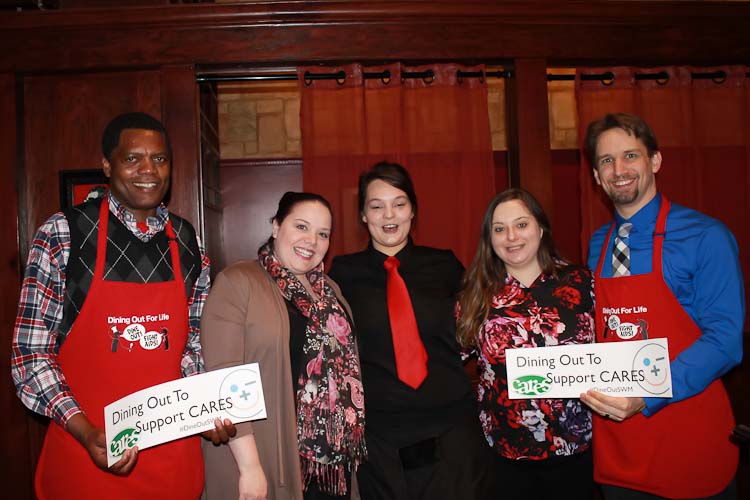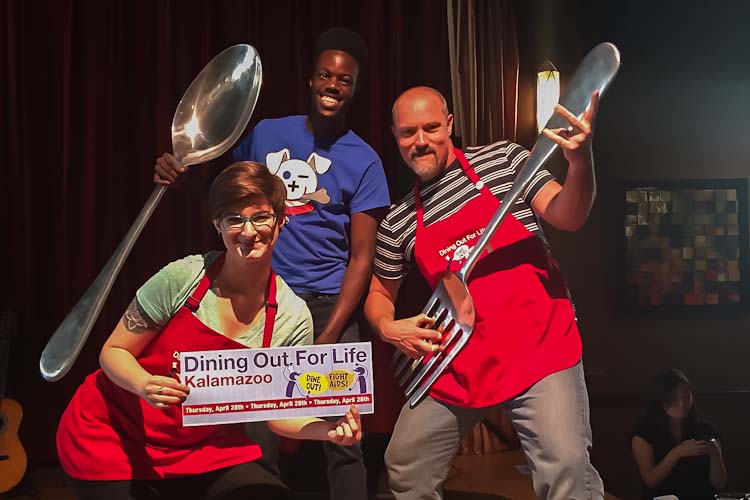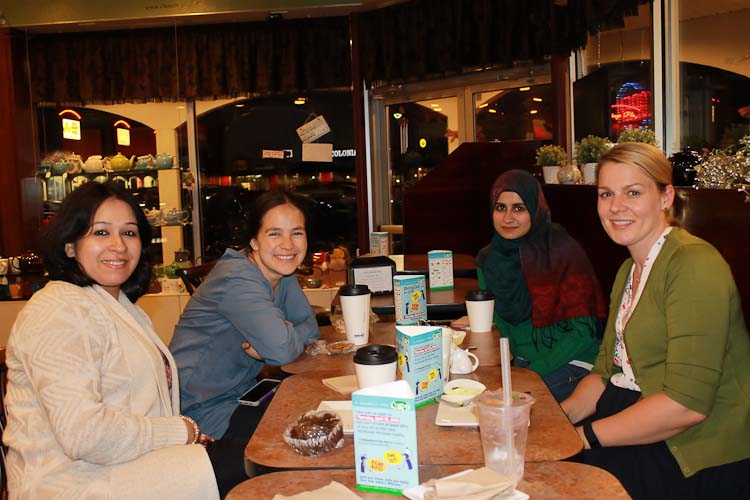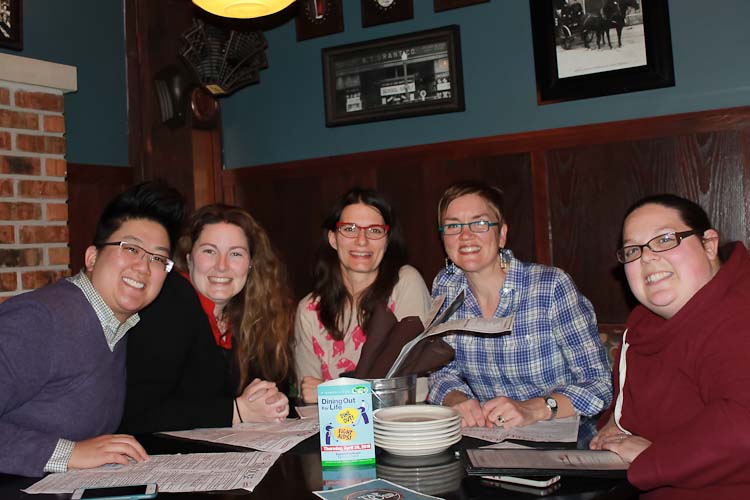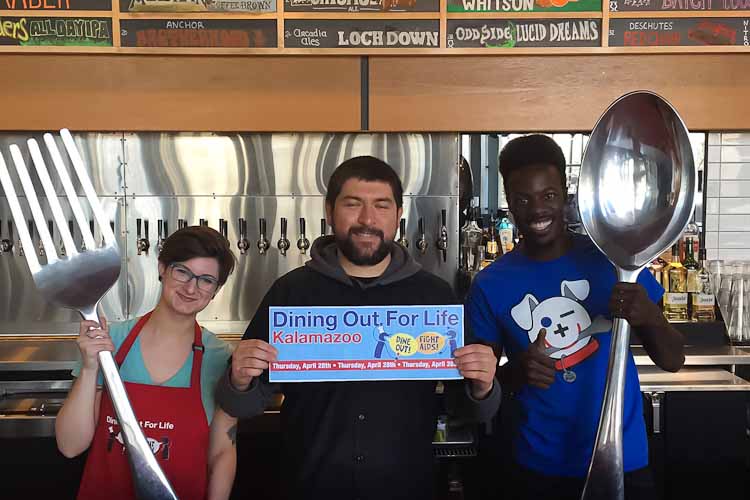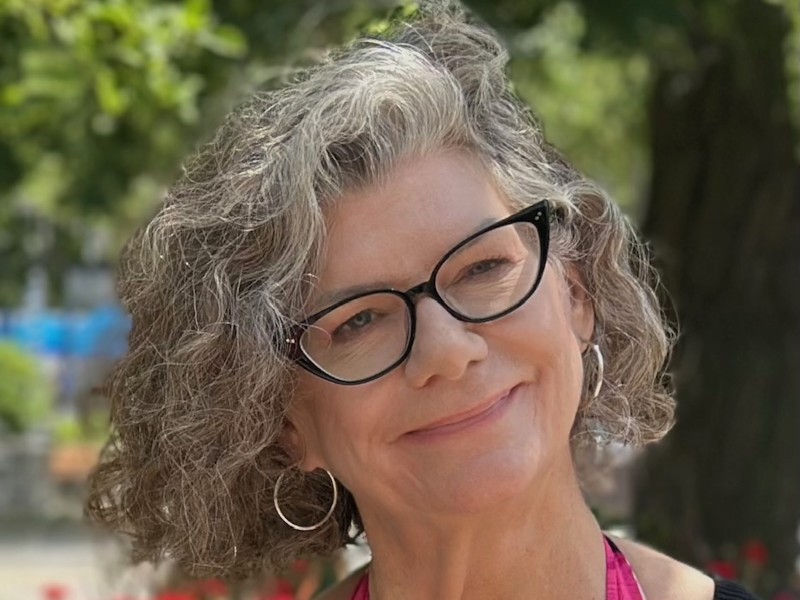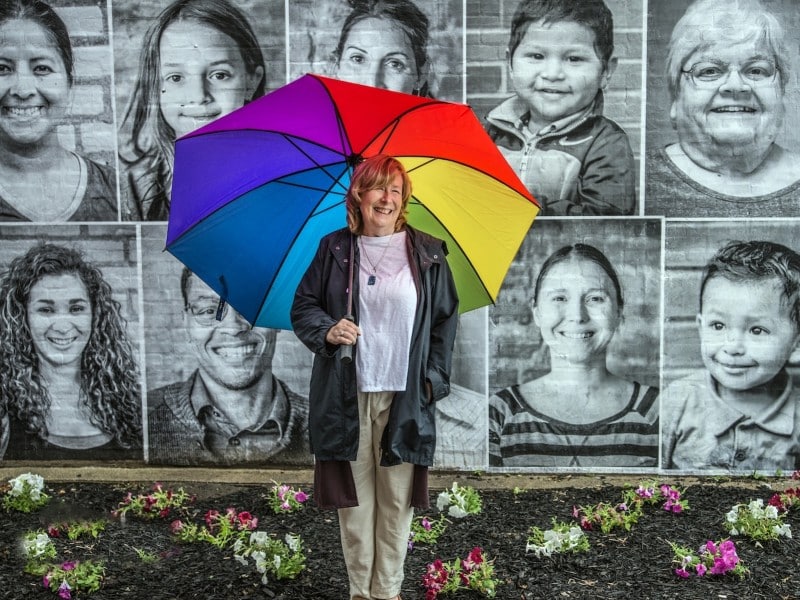On the cusp of eradicating HIV/Aids: How Dining Out For Life breaks down stigma, builds up resources
Today, 1.2 million people live with HIV in the United States. Dining Out For Life at 32 participating restaurants locally reminds people the disease has not gone away.
Since 1991, Dining Out For Life has been raising funds and awareness for HIV/AIDSprevention and treatment. Each year, more than 3,000 restaurants in North America participate by donating a significant portion of their proceeds of the evening’s earnings to a licensed Aids service agency in their city. Last year, more than $4 million was raised, nationally. This year’s event will take place Thursday, April 27, and in Southwest Michigan, 32 restaurants will participate by donating at least 25 percent of the evening’s proceeds to CARES (Community AIDS Resource and Education Services).
Kelly Doyle is the Executive Director at CARES. She says her work in HIV/AIDS dates back to 1997 when she began volunteering for CARES.
“I got involved with the work because I had a close friend who was diagnosed with AIDS in the 1990’s and died. I wasn’t sure how to handle what had happened so I went to volunteer at CARES to get a better understanding of the disease and also the co-factors and environmental factors of what was happening.”
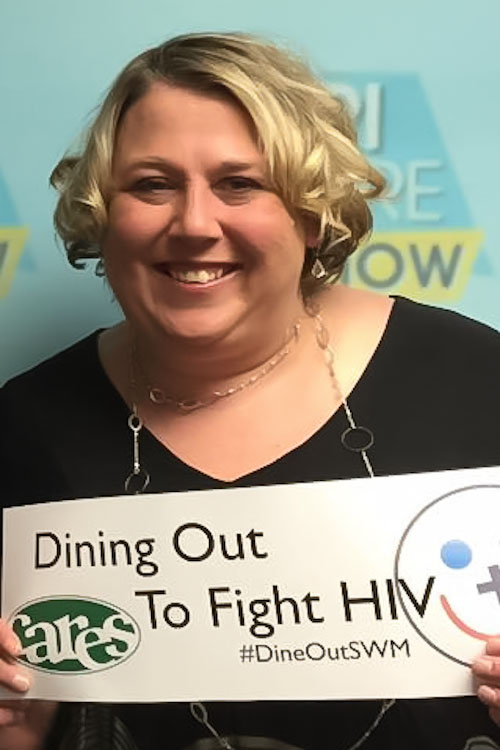
Doyle says that her friend was shunned for being gay and hid his HIV out of fear. Watching him struggle with not only the disease but also the stigma that accompanied it, was painful. “No one should have to deal with a life-threatening disease on their own or feel shame for having it,” says Doyle.
Spokesperson for Dining Out for Life and celebrity chef, Daisy Martinez, agrees. She recalls being a young woman in the ’80’s when the epidemic started, and she had many friends who were directly affected by it.
“It was a horror. It was a travesty. You’d see a friend one week and the next week you’d be having coffee, and it would be like, ‘how’s so and so?’ and they’d just shake their heads,” Martinez says, referring to the grim prognosis that HIV/AIDS used to bring in the ’80’s and ’90’s.
Martinez likens that time to post-911. “It was shell-shock,” she says. “One day a person was here and the next day they weren’t. It was a horrible, horrible thing.”
Progress in the battle against HIV
Today, 1.2 million people live with HIV in the United States. Of those million, 15,180 live in Michigan, and 420 live in Kalamazoo County.
Doyle says that HIV has evolved immensely and she says that we are even on the cusp of potentially eradicating the disease. “We can put an end to HIV/AIDS in this lifetime but we need to put the resources and energy behind it to do so,” she says.
The science around understanding and controlling HIV have significantly evolved over the past five years. Doyle says that there are basically two evolutions in treatment protocols that have been particularly significant.
The first is Treatment as Prevention (TasP). “We have found that if a person (is) living with HIV but is virally suppressed, they can’t transmit the disease to another person. Virally suppressed means that the HIV is so low in their body that it can’t be detected on any of our current scientific testing. Another term for this is Undetectable. So if you are undetectable (from adherence to HIV medications) then you are un-infectious,” says Doyle.
The second is Pre-exposure prophylaxis (PrEP). “This is for people who are HIV negative but are at high risk for the disease,” says Doyle. Taking PrEP can be 99 percent effective in remaining HIV negative.
The CDC considers the following people at high risk and candidates for PrEP:
• People in an ongoing relationship with an HIV-positive partner;
• Gay and bisexual men who have had anal sex without a condom or who have been diagnosed with an STD in the past six months and who are not in a mutually monogamous relationship with someone who has tested HIV negative;
• Heterosexual men and women who do not regularly use condoms during sex with partners of unknown HIV status, who are also at substantial risk of HIV infection (e.g., people who inject drugs or have bisexual male partners);
• Injecting drug users.
Doyle says that we have seen progress in Michigan because more people know their HIV status and because people are getting into medical care quickly and obtaining viral suppression.
“When I started the work in 2003, the statistic was that there were 40 percent of people living with HIV that did not know their status. Today that number is 14 percent. That is amazing work nationally, statewide and locally,” Doyle says.
Increased resources through the Affordable Care Act and some of the changes in science over the past five years have lent to that success. Doyle says this trend is a way to end the disease, but, she adds, “if we don’t support HIV resources or (if we) make cuts to the dollars supporting prevention and medical care, we won’t get there.”
Barriers
While there has been significant progress in HIV/AIDS treatment and prevention over the decades, the barriers around accessing care are still centered around the stigma associated with the disease. Homophobia, racism, and poverty are all factors that keep people – and institutions – from investing or even talking about the issue.
“Homophobia often leads to elected officials not investing in dollars for HIV prevention and care, and then you see a large spike in the transmission of the disease due to lack of medical care or prevention,” says Doyle.
HIV criminalization is also a hurdle to fighting the stigma of the disease. According to the CDC, “Twenty-four states require persons who are aware that they have HIV to disclose their status to sexual partners and 14 states require disclosure to needle-sharing partners. Twenty-five states criminalize one or more behaviors that pose a low or negligible risk for HIV transmission. Nearly two-thirds of states in the USA have legislation that criminalizes potential HIV exposure.”
According to Doyle, laws that criminalize HIV increase stigma, do not increase disclosure behavior, and decrease people reaching out for HIV testing and treatment. The American Medical Association, Department of Justice, and the American Psychological Association have all publicly opposed or called for modernizing these laws in order to help eradicate HIV stigma.
“You hear the term ‘Take the test, risk arrest’ due to the fear of prosecution (that comes) with living with HIV,” Doyle explains. She says these laws also hurt women in domestic violence relationships whose abusive partners sometimes seek retaliation.
“The reason they can do this is that this law does not require anyone to show intent or take transmission into account. It is a ‘he said she said’ and we often see with the stigmatizing of people with HIV, that it doesn’t matter if they say they have disclosed, a partner just needs to say they didn’t.” Doyle says she has seen court cases where disclosure occurred and the person living with HIV still went to prison.
The Success of Dining Out for Life
For CARES, 2017 marks the ninth year producing the Dining Out For Life event in the Kalamazoo/Southwest Michigan area. In 2009 – their first year – CARES had eight participating Kalamazoo and Portage restaurants. This year that number has jumped to 32.
Fieldstone Grill, Mangia Mangia, Oakwood Bistro, and Theo & Stacy’s (Portage Road and Westnedge locations) have all been participating since the beginning.
Last year, CARES received $60,350 from the event plus in-kind donations that totaled $33,350.
“When I come out for Dining Out For Life — it’s educate, support, and advocate. Those are the key things for me,” says Daisy Martinez.
“I want people to know that it (HIV/AIDS) hasn’t disappeared… It’s here. It may be hiding here in the United States, but it’s here.” Martinez says she wants young people, especially, to be aware of the risks of HIV. She’s worried about the people who grew up post-1980’s, who don’t remember the reality and the ugliness of AIDS.
Martinez puts Dining Out For Life on her calendar every year. “Those restaurants will donate a generous portion of the day’s proceeds to fund HIV/AIDS prevention, care, education, testing, counseling, and other essential services in their city.”
Kathi Valeii is a freelance writer, living in Kalamazoo. You can find her at her website, kathivaleii.com.

